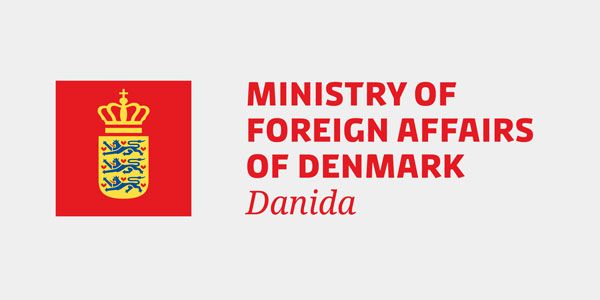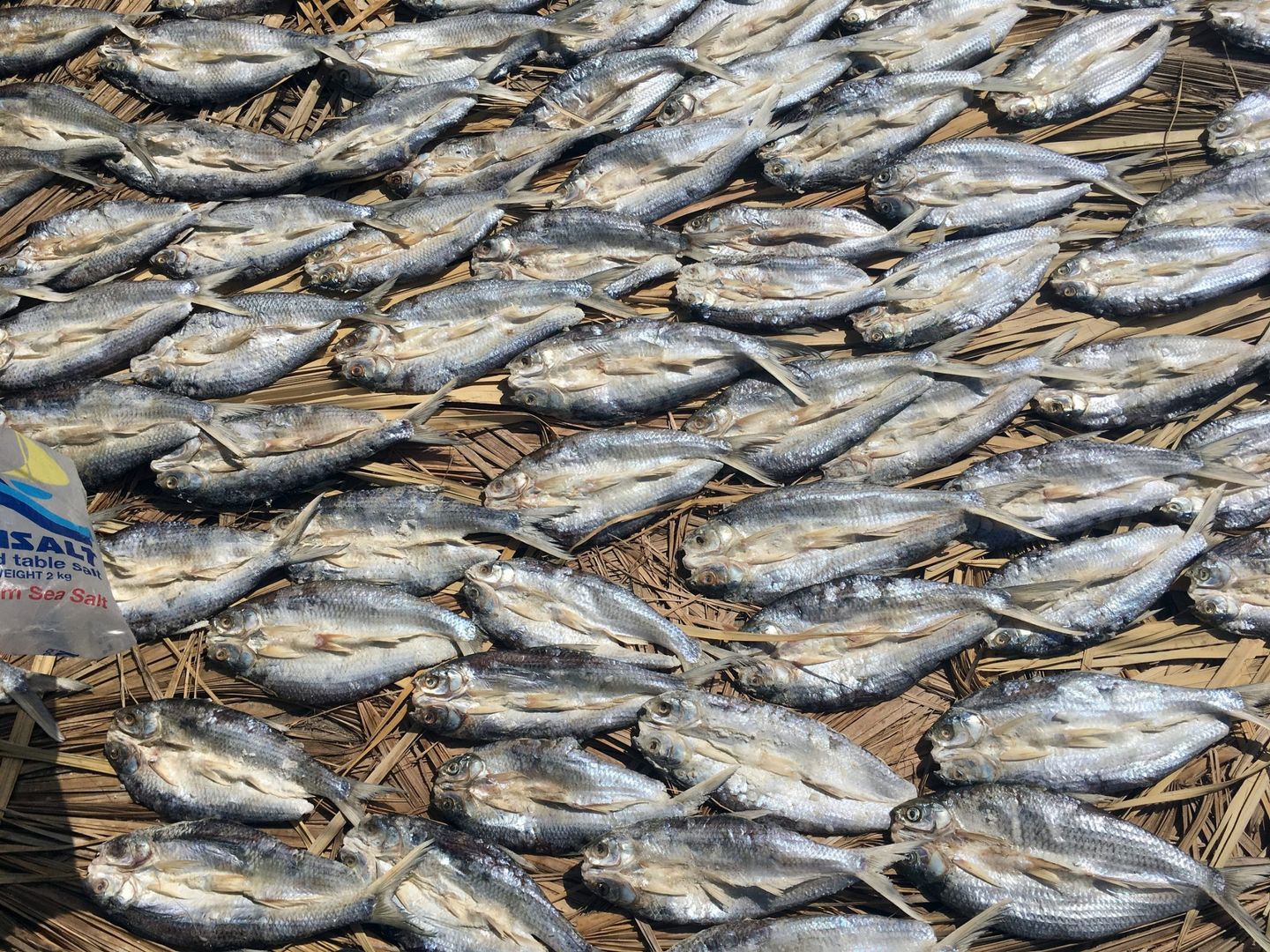The small white metal box in the middle of the circle of women contains all the women’s dreams for the future. The dream of a shop selling salted fish. The dream of producing woven baskets. Dreams of a motorboat to ship the baskets and processed fish to more customers. And dreams of sending all the children in the circle to school.
Paulina Ateir has set her youngest son down so he can play with pebbles on the dry ground while she concentrates on collecting money from the other women.
Once a week, they meet in a place that is shaded from the midday sun, and each of them pays 100 shillings (around USD 0,70). The payment is noted in small red “bank books” that keep track of how much each has saved up for the group.

Shared savings are vital
So far, the women’s fortunes have grown to the equivalent of hundreds of dollars.
The joint savings function as a bank and as a vital safety net providing loans to women at an interest rate of 10%. If one of the women loses a family member, she is paid 3,000 shillings (approx. USD 20) as an insurance benefit that she does not need to pay back. Similarly, the women take care of each other if they are abandoned by a husband, or if a child becomes ill and needs medical care.
We feel stronger now because we always know that we can help each other out when we need it.Paulina Ateir
Climate change
Before she joined the savings and loan group two years ago, she earned a little money by selling small pieces of firewood that she gathered in the drought-stricken Turkana region. With that money she fed her three children. Her husband supplemented the income from fishing in nearby Lake Turkana.
Kenya’s poor northwest region is being hit so hard by climate change that the population can no longer make a living as shepherds. The unpredictable and severe drought conditions kill the cattle.
Finding new ways to make money
The lack of food creates conflicts between families and communities, and many have tried to find new ways to survive at Lake Turkana. But the drought makes life unpredictable.
“Before I joined our savings and loan group, it was impossible for me to borrow money from anyone. I was constantly afraid I wouldn’t have enough food for my children.” She brushes the sand off her son’s small fingers.
The women’s savings and loan group was established with support from DanChurchAid and in partnership with the Kenyan organisation SAPCONE. The women themselves approached SAPCONE as they liked working together and needed help getting organised.
A dream may come true
The project teaches women how a savings and loan group works and they get support for producing crafts and processing fish and other food so that they can sell their products at better prices. Paulina Ateir hopes to get a loan from the savings to open her own shop and buy a motorboat to transport the processed fish and hand-woven baskets to cities with more customers who pay better prices.
Paulina Ateir hopes to get a loan from the savings to open her own shop and buy a motorboat to transport the processed fish and hand-woven baskets to cities with more customers who pay better prices.
Owning a motorboat
A short drive away, on the shore of Lake Turkana, a group of fishermen dream of a motorboat as their next joint investment. The first engine has already been purchased, but they need another one for the second of the two boats they purchased with their joint savings.
Together with SAPCONE and DanChurchAid, the fishermen organised themselves a few years ago into a cooperative group. Their joint savings so far have allowed them to buy two boats that can sail further out on the lake where the fish have migrated as the drought caused the water level to fall.
Crocodiles
In the past, they were able to fish only close to the shore of the lake, alone and on thin palm stems tied together with nylon string and used as a kind of paddle board.
“We couldn’t reach the big fish. And it was dangerous. I have lost friends and family.” Peter Ekiru points to a group of Nile crocodiles, 2-3 metres long, sunbathing on the muddy bank just a short distance away.
“Now, we can sail out in our boats in teams so that we can watch out for each other. In a boat with an engine, we can quickly get out to where the fishing is still good.” Peter Ekiru nods toward the reed mats covered with dried fish baking in the sun and making the hot air taste of salt.

Joint savings for new investments
As part of the project, the men received a subsidy to buy better fishing equipment, and they were taught how to get a higher price for the fish they catch.
Before the project, Peter Ekiru and the other men in the group regularly drove on motorbikes to sell their small catch in the Kakuma refugee camp more than 150 kilometres away.
The trip took a long time on the sandy roads, and the profit was not enough to provide food for them. With the motorised boat, the men can now sell fish by moving around the lake to customers. In two weeks, they can earn approximately 20,000 shillings (approx. USD 140) as a group.
They leave 5,000 shillings in the joint savings account and split the rest equally between them.
Two meals a day
“It feels like better times are coming. In the past, my family had one meal a day at the most. Now we eat twice a day, and I have money to buy clothes and textbooks for our children.”
Peter Ekiru gets the group’s fishing net ready for the next foray a little later in the day when the sun is no longer so intense. He smiles and drapes his pink wool blanket around his shoulders to protect them from the sun’s strong rays.
Earlier on, being a fisherman always made you a poor man. That’s not the case anymore.”Peter Ekiru
The project
DanChurchAid works with SAPCONE and ASAL Humanitarian Network in this project which is funded by the Danish Ministry of Foreign Affairs.
Read more about the project here Assisting vulnerable people affected by drought in Turkana County – DanChurchAid


